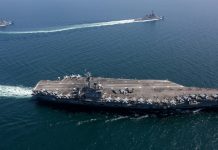
Turkey is reportedly advancing negotiations with the United States regarding the decommissioning of its Russian-supplied S-400 air defense systems, a strategic move aimed at facilitating its return to the F-35 fighter program and restoring its Tier 3 partnership status. The F-35 program has been a key point of leverage for Washington, which in 2019 expelled Turkey after it began receiving components for the S-400, citing concerns over arms revenue benefiting the Russian defense sector and NATO security alignment.
While Turkey previously signaled potential interest in acquiring Russian alternatives like the Su-35 or Su-57, its long-standing integration within NATO’s military framework, reliance on Western technology, and geopolitical dependencies have made such acquisitions impractical. Following talks with U.S. officials, Ankara appears to be shifting focus from the older F-16 jets toward a renewed effort to acquire the more advanced F-35s, due to fewer export constraints.
According to reports, the U.S. has proposed a solution that would allow Turkey to retain the S-400 missiles on its territory while effectively placing their control under U.S. authority, likely within the U.S.-controlled sector of Incirlik Air Base in southern Turkey. This arrangement, still under negotiation, would allow Turkey to avoid a direct breach of its contract with Russia while removing a major impediment to its participation in the F-35 program.
Despite initial resistance from Ankara, with Turkish officials indicating they would retain the systems in storage, discussions are ongoing. A potential agreement would mark a significant strategic victory for both NATO and the U.S. by addressing a longstanding security issue, while providing Turkey access to critical fifth-generation fighter technology, bolstering its air capabilities. The move is especially relevant given Turkey’s active role in regional conflicts and its ability to project power in the Middle East, notably against Syrian, Russian, and Iranian forces.
The transfer of the S-400 systems under U.S. control could also serve a secondary benefit for the U.S. military by allowing for direct analysis and testing of Russian air defense technologies. Meanwhile, the acquisition of F-35s would enhance Turkey’s operational capabilities, especially given its current reliance on outdated F-16 and F-4 fighters.
For Washington, reinstating Turkey in the F-35 program offers significant strategic advantages, particularly as Turkey remains a critical NATO member with extensive influence in the Middle East. While some regional players, like Israel, have opposed F-35 sales to other nations, Turkey’s role in NATO and the strategic advantages of its proximity to conflict zones make its participation in the program a net benefit to Western defense interests. Additionally, the risk of Turkey misusing F-35 technology is mitigated by the centralized ALIS logistics system, which gives the U.S. the ability to disable the aircraft remotely if necessary.
In summary, resolving the S-400 issue and reintegrating Turkey into the F-35 program would not only restore a vital defense relationship between Turkey and the U.S., but also significantly enhance NATO’s strategic positioning in the region.




